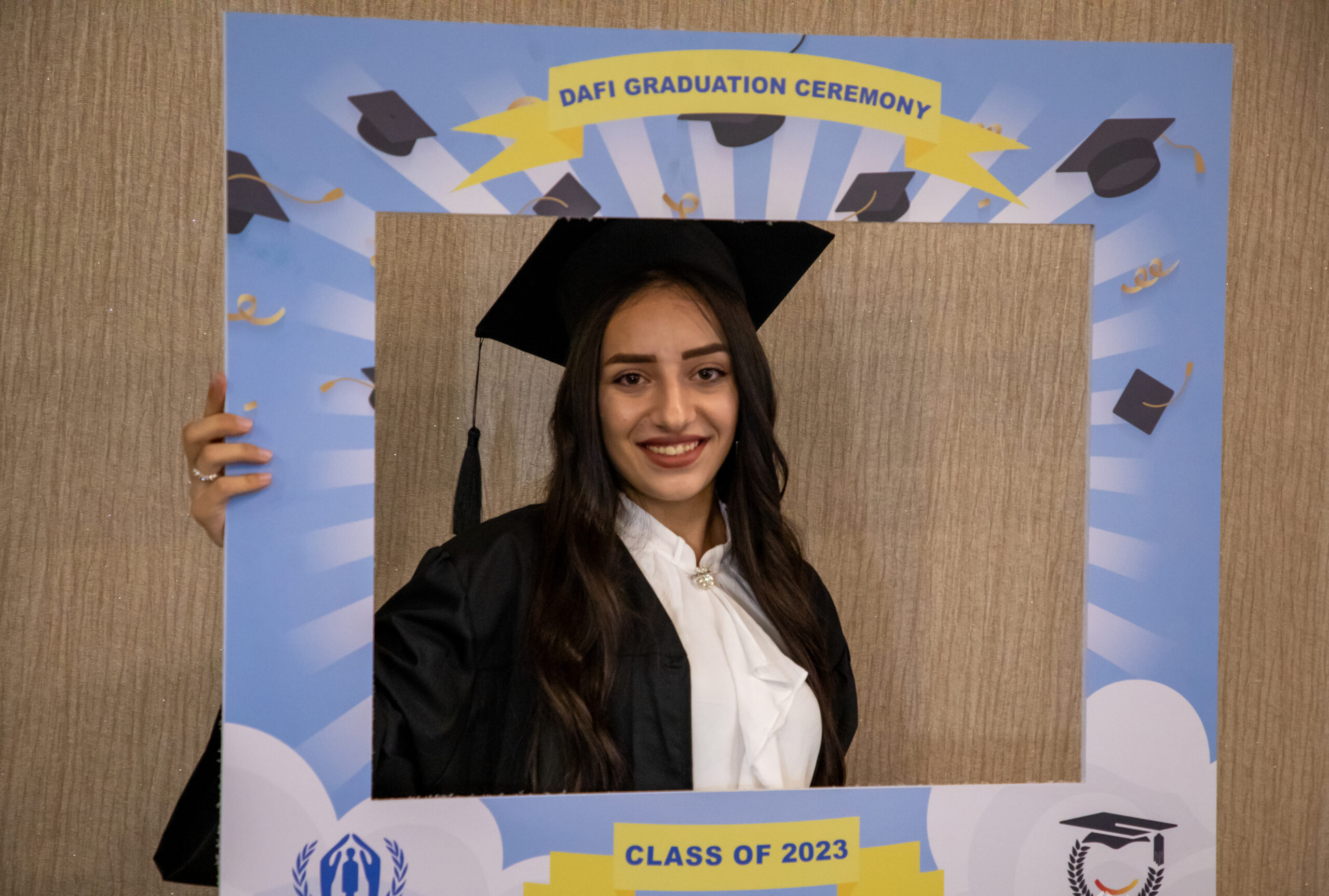UNHCR’s flagship education project: the Refugee Education Integration Policy
In 2022, the Ministry of Education of the Kurdistan Regional Government (KRG) partnered with UNHCR, UNICEF, Save the Children, and other Education partners to gradually include Syrian refugee children and teachers into the Kurdistan Region’s public education system. This effort culminated in the launch of the Refugee Education Integration Policy (REIP), representing a significant milestone in refugees’ inclusion in the national education system, and showcasing the KRG’s standing as a pioneer in advancing refugee inclusion. Prior to the REIP, the KRG administered a parallel education system for Syrian refugee children in both camps and urban communities.
The inclusion of refugee children into existing public schools helps advance development outcomes for both refugee and Kurdish communities. It gives refugee children access to quality and inclusive education at par with local community students; minimizes the need for disruptive, costly and temporary measures to sustain parallel refugee schooling; and fosters social cohesion between refugees and host communities. Strengthening the capacity of qualified refugee teachers will guarantee them the same salary as national teachers through their inclusion in the KRG payroll system and provide them with access to a livelihood opportunity, while offering a way to give back to the communities that welcomed them by also teaching their children, thus furthering social cohesion. In addition, refugee children and teachers’ inclusion into public education system will pave the way for enhanced economic inclusion, improving their ability to pursue productive and meaningful lives.
The implementation of the REIP started with the academic year 2022-2023 for grades one to four and was extended in July 2023 to include grade five for the academic year 2023-2024. At the Global Refugee Forum in Geneva in December 2023, the Kurdistan Regional Government (KRG) pledged to ensure that the Refugee Education Integration Policy (REIP) will be incrementally implemented for grades 5 to 12 by 2030, which will benefit refugee children aged 10-18 years and qualified refugee teachers. UNHCR continues appealing to donors to provide financial support to the KRG and to the REIP partners to ensure the success of the REIP’s implementation.

DAFI- the Albert Einstein German Academic Refugee Initiative scholarship programme
UNHCR supports refugee higher education through the DAFI (Albert Einstein German Academic Refugee Initiative) scholarship programme. The DAFI scholarship allows qualified refugee students to earn an undergraduate degree in Iraq that enables them to develop skills and achieve qualifications that allow them to become change-makers who can lead in identifying solutions to the challenges that affect them and their communities.
Since 2016, 488 refugee students (281 women) have been sponsored by DAFI in 21 universities in Iraq. The DAFI programme is funded through the dedicated support of the Government of Germany, along with the support of the government of Denmark, in addition to other private partners and foundations.

